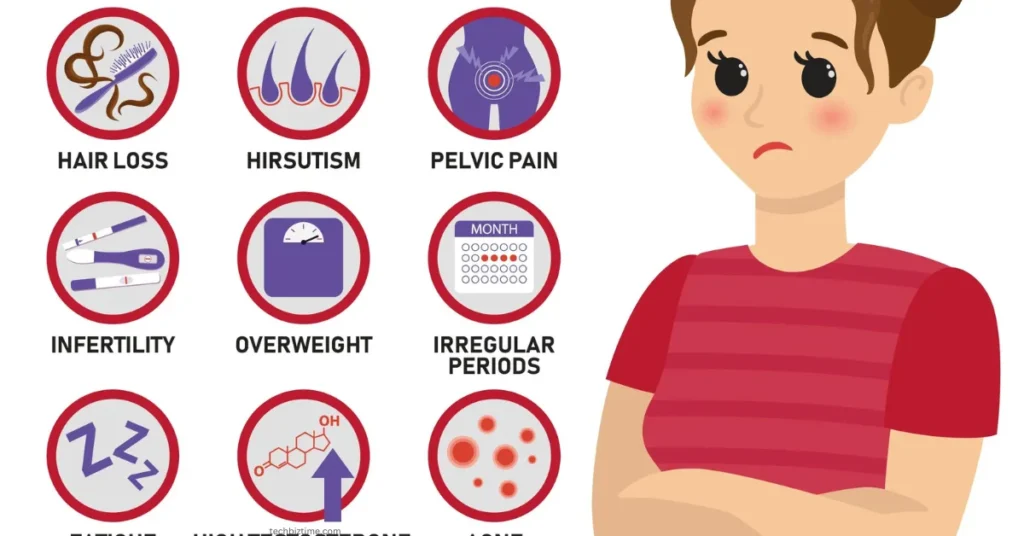Polycystic ovary syndrome (PCOS) is a common hormonal disorder that causes excessive production of male hormones leading to a hormone imbalance. It can make it difficult for women to get pregnant because of the inability of the ovaries to produce a mature egg. Small cysts, fluid-filled sacs, may form on the outer wall of the ovaries, but PCOS may occur without cysts as well. PCOS can cause problems with the menstrual cycle and may cause excessive facial hair and acne. A Gynecologist in Karachi can help diagnose the condition and guide you about its treatment.
Common Symptoms of PCOS:
Irregular period cycle:
Abnormal, irregular, missing periods, or not having periods at all can indicate PCOS. It may also involve heavy bleeding during the menstrual cycle. Due to this, it may be tough to become pregnant.
Hair growth problems:
Another sign of PCOS is excessive facial hair growth, known as hirsutism. Many women experiencing PCOS may also face hair growth in other body areas. On the other hand, it can also lead to thinner hair, hair loss, and male pattern baldness in some cases.
Acne:
Acne is a usual symptom of PCOS, especially on the back and face. The skin can become oily if you have PCOS and cause acne breakouts.
Weight gain:
A majority of women with PCOS are overweight or obese. PCOS makes it harder to lose weight and may require extra effort. Losing weight with PCOS can be difficult and can result in depression among women. Consult the Best Gynecologist in Lahore for tips on managing and reducing weight for PCOS.
Darkening of the skin:
Dark patches may also appear when you have PCOS, known as acanthosis nigricans. These patches may appear on the face, on the neck, between the legs, and under the breasts. It is known as acanthosis nigricans.
Cysts:
Women suffering from PCOS have small pockets of fluid in the outer wall of their ovaries or develop follicles on them. It may expand the size of cysts and hinder the process of conceiving.
Infertility:
PCOS can result in the ovaries being unable to release healthy eggs that the sperm can fertilize. A lower frequency of ovulation can result in not being able to conceive. PCOS is a leading cause of infertility in women.
Depression:
Women with polycystic ovary syndrome (PCOS) are more likely to experience anxiety and depression. It occurs due to a hormone imbalance, mainly due to an increase in the male hormone androgen. It can intensify mood swings and cause depression.
Conclusion
PCOS can disturb the female reproductive system and is a leading cause of decreasing fertility in women. The doctor may recommend lifestyle changes, such as losing weight, exercising, and adopting an overall healthy lifestyle. If lifestyle changes are not helping, medication is an alternative option to manage the symptoms of PCOS. If you are not looking to get pregnant, birth control pills can help regulate your periods too. Most importantly, visiting a good gynecologist can help you treat PCOS and feel better even better.
